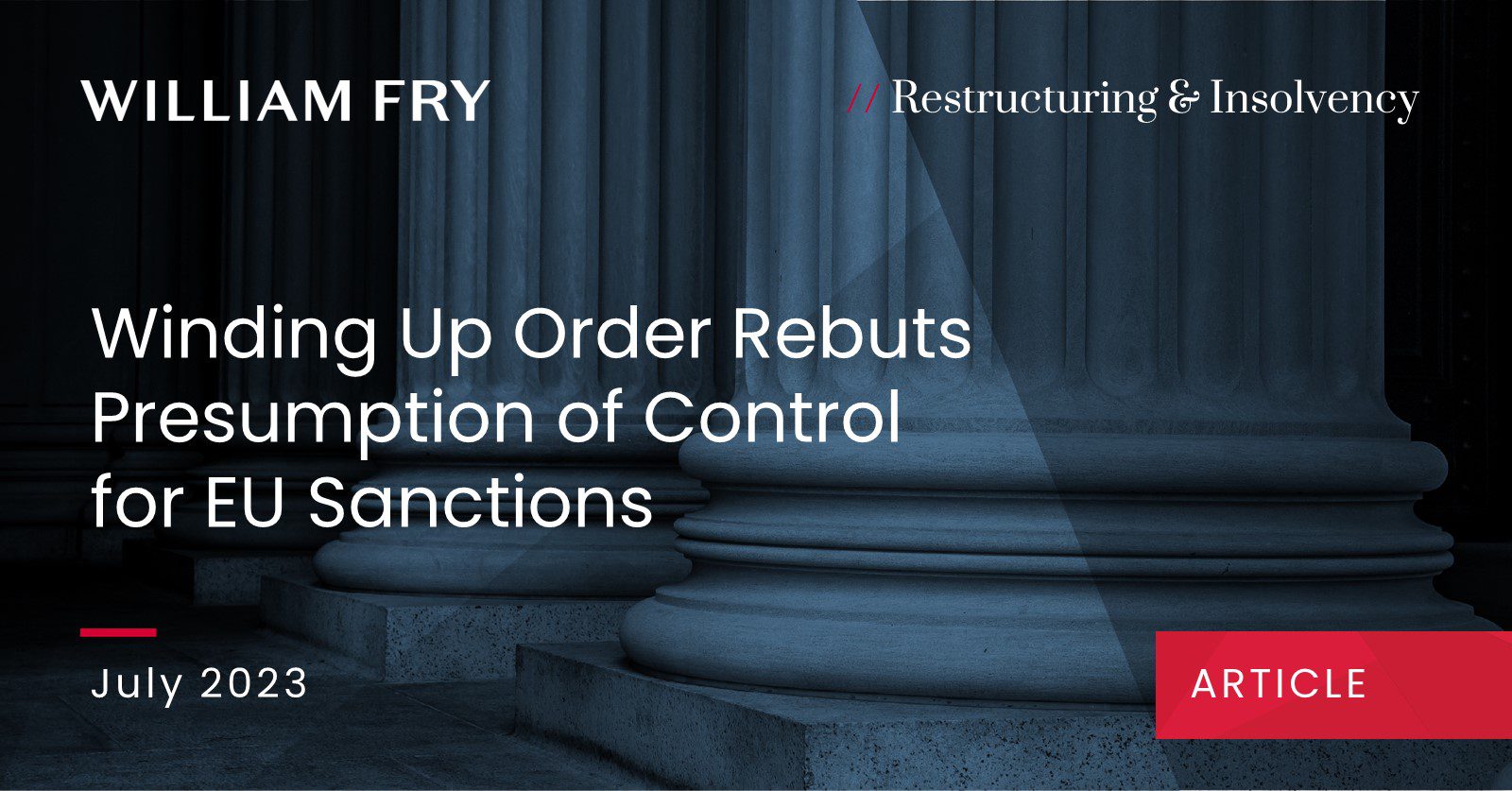Earlier this year, a group of bondholders advised by William Fry and owed over US$175m by GTLK Europe DAC (GTLK Europe) and GTLK Europe Capital DAC (GTLK Capital) (collectively the Companies) petitioned for the winding up of the Companies on a number of grounds, including that they had failed to discharge scheduled interest payments and the accelerated debt constituted by the bonds following the interest payment defaults.
In doing so, they also successfully opposed an examinership petition brought by the Companies. An order was made on 31 May 2023 by the Court appointing Damien Murran and Julian Moroney of Teneo Ireland as joint liquidators (Joint Liquidators).
The Companies are part of the GTLK Europe Group. GTLK Europe is the top-level company for GTLK Europe Group’s operations in Europe and the Middle East. Before the appointment of the Joint Liquidators, GTLK Europe’s principal activities included aviation and maritime leasing. GTLK Capital is a special purpose vehicle that was incorporated to facilitate the raising of finance by the GTLK Europe Group.
Effect of Asset Freeze Regulation
The Companies were ultimately owned and controlled by Joint Stock Company GTLK (Ultimate Parent), a company wholly owned by the Russian Federation. Following the invasion by Russia of Ukraine in February 2022, the Ultimate Parent was designated as a sanctioned entity by the EU under the Asset Freeze Regulation with the effect that all the funds and economic resources belonging to, owned, held or controlled by the Ultimate Parent were frozen, and no dealings restrictions were imposed on the Ultimate Parent (Article 2). Neither company was specifically designated by the EU, but, as subsidiaries of the Ultimate Parent a presumption of control arises under the Asset Freeze Regulation and associated EU guidance such that if a designated entity (i.e. the Ultimate Parent) owns or controls a non-designated entity (i.e. the Companies), it can be presumed that the control extends to the assets of that non-designated entity and that any funds or economic resources made available to that non-designated entity would reach or benefit the designated entity. The result of this presumption is the application of the Asset Freeze Regulation to the Companies and their assets (including all the asset-owning subsidiaries of GTLK Europe).
This presumption of control can be rebutted on a case-by-case basis by the entity concerned if it can be demonstrated that some or all its assets are outside the control of the designated person and/or that funds or economic resources made available to it would not reach or benefit the designated person. The Central Bank of Ireland (CBI) is the competent authority in Ireland to factually determine whether the presumption of control has been rebutted, taking into account the specific circumstances of the case. If the CBI determines that the presumption of control has been rebutted, then the Companies are not subject to the Asset Freeze Regulations.
Joint Liquidators’ Application
To facilitate the proper and efficient conduct of the liquidation of the Companies, the Joint Liquidators applied to the Court seeking, among other things, declarations that the presumption of control which arises in respect of the Companies under the Asset Freeze Regulation is rebutted in circumstances where the Joint Liquidator have been appointed to the Companies by the Court and that the assets of the Companies are under the control of the Joint Liquidators, who are the only persons entitled to deal with them. The application was made on notice to the CBI and other interested parties, including the petitioning bondholders.
Stance of the CBI
The CBI agreed that the appointment of the Joint Liquidators constitutes a legal basis for rebutting the presumption of control such that the Companies’ assets are removed from the effects of Article 2 of the Asset Freeze Regulation.
Decision of the Court
On 11 July 2023, Mr Justice Quinn determined, among other things, that the presumption of control by the Ultimate Parent, which arises in respect of the Companies under Article 2 of the Asset Freeze Regulation, is rebutted in circumstances where the Joint Liquidators have been appointed to the Companies.
The determination of the Court is likely to greatly facilitate the winding up of the affairs of the Companies (which remain subject to US and UK sanctions) and securing a return for creditors.
For further information or to discuss the implications of this judgment in more detail please contact Ruairi Rynn, Barbara Galvin or Leanne Ennis.




